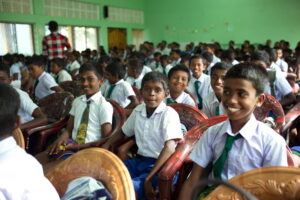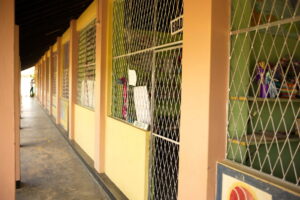Since the beginning of separatist conflict in the North and East of Sri Lanka in 1983, there have not been many good days in eastern Sri Lanka. Until hostilities in the East ceased in 2007, the fighting was severe, inflicting a heavy toll on civilians and both LTTE and Government forces. Economic, educational, health, transport and other infrastructure was badly damaged, leaving the weary people of the East in harsh circumstances when the fighting ceased. When an MJF Foundation team first visited the region as part of the post Tsunami Reconstruction programme, there were few smiles and even when assistance for the construction of homes and a community centre in Thiraimadu were handed over, the faces of the beneficiaries remained grim. The men, women and children of the East had suffered war, cyclones, floods and tsunami, and there was no reason to smile.
Earlier this week it was different and the smiles were back. That is encouraging. However the Eastern University has not awarded a doctorate for over a year for lack of good lecturers. The schools are full of children, but lack teachers and furniture. In some areas attendance is low in spite of the desire the children have for learning because they do not have school uniforms.
Our ‘great day’ in the east was marked by the laying of a foundation stone for a 20-acre centre designed to support dignified and sustainable empowerment of the men, women and children in and around Batticaloa. Located in Kiran, in an area that was heavily mined in the past, the facility will express the vision of Settlor of the MJF Foundation, Dilmah Founder Merrill J. Fernando, that business is a matter of human service. Children with different ability, especially those with cerebral palsy, autism, down syndrome, will be assisted here and whilst the facility – due to open in stages commencing January 2018, will care for over 100 children with developmental disorders, it will also train teachers, family members and care givers in enlightened and effective therapy to nurture the ability that children with the conditions have.
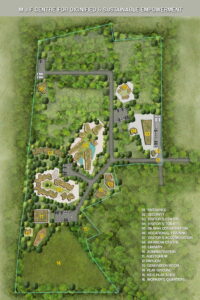
Visualization of the MJF Centre East, a Centre for Dignified Empowerment and Sustainable Agriculture
As a result of the prolonged conflict in the region, whilst the number of children and youth who are differently able is high, there is neither a record of their number or location, nor a facility to support them or their parents. Called the Rainbow Centre, this element of the MJF Centre East will work with its counterparts at the MJF Centre West and the MJF Foundation’s National Centre for Children with Cerebral Palsy and Developmental Disorders (NCCCPDD) to educate people about the conditions whilst building a Database of Disabled Persons to facilitate research and design of support systems.
Dilmah Conservation will establish the One Earth Arboretum mirroring the arboretum in its Moratuwa facility, and adapted to the unique ecosystem in the area, while presenting the traditional and sustainable lifestyles of the eastern Veddah community. The environmental programmes in the facility will include a Climate Adaptation and Sustainable Agriculture Research facility which will initiate and sponsor research, development and demonstration of agricultural methods that can best cope with the complex natural environment and climatic patterns in the east of Sri Lanka. Amongst the free services the facility will offer farmers in the East are training on smart agriculture, adding value to their primary crops and for others, design and other skills to do the same with the craft, or services.
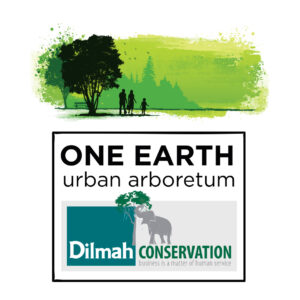
Dilmah Conservation’s One Earth urban Arboretum in Moratuwa is Sri Lanka’s first urban arboretum. It will be inaugurated by the President of Sri Lanka in February, 2017.
The people of the east are remarkably committed to learning and yet innovation has suffered with the daily struggle for survival that most families experience. An eastern equivalent of the Empower Culinary & Hospitality School and its ancillary Innovation, IT & Graphic Design training, Vocational Training elements will also feature in the MJF Centre East. As the name implies, the vocational training will focus on empowering people through knowledge but also on offering them the knowledge they need while encouraging them to participate in building their local economy. It is ultimately they who must re-energise the east to benefit themselves, their families and future generations. The training will be linked to the use of sustainable, local resources, regional traditions, art, and where the environment is concerned, indigenous and appropriate species.
The cost of this project will be close to a billion Sri Lanka rupees and every cent is generated by earnings from the sale of Dilmah Tea or from the commercial activities of the other businesses in the MJF Group. However this is not a CSR project. Reality has changed since Milton Friedman’s declaration in Capitalism & Freedom (1962) and his 1970 Essay in the New York Times Magazine that, “There is one and only one social responsibility of business — to use its resources and engage in activities designed to increase its profits so long as it stays within the rules of the game, which is to say, engages in open and free competition without deception or fraud.”
The MJF Centre East is a part of the Purpose of Dilmah and its allied businesses. Corporate Social Responsibility is a good thing, but as it has evolved in most cases reluctantly and out of compulsion – with clear correlation to consumer demand for such responsibility – it is a reaction, and whilst good, it cannot be considered great.
The difference appears linked to the gulf that exists between notions of Purpose and Responsibility. As with many family businesses, the knowledge that business has clear purpose which goes beyond generating profit, was evident to my father, Merrill J. Fernando. In the village in which he was born the sound of the cockerel crowing is louder than any other except for the chime of the church bells. It is quiet in Pallansena. In that very ordinary and rural environment my grandmother Lucy, nurtured in her son the philosophy that today defines the purpose of our business. The family that had relatively little would have to share anything they received because the neighbours had even less.
That simple principle was burnished as young Merrill J. Fernando came to Colombo and developed a yearning to taste tea. He was not allowed to at first but when invited to join the first batch of Ceylonese to be permitted to learn the art of tea tasting, the change that the colonial masters feared was initiated. Nearly four decades later, my father achieved his dream of offering tea grown, handpicked, packed fresh and pure of origin, direct to tea drinkers around the world. The process refined, reinforced and perfectly crystallized the purpose that was to form the core of the business that grew beyond its Founder’s dreams.
The responsibility of business to serve is logical, for without the people in the community and without the natural environment in which it operates, most businesses could not exist. It is not a peripheral responsibility though for all the technological progress the world has seen, levels of inequality and poverty are only marginally improved, and inequality is a corrosive and debilitating factor that is the cause of conflict. As much as climate change is a looming threat to every citizen of the world, so is inequality for it is that which makes a Somali fisherman a pirate, or an American farmworker a terrorist. A business cannot prosper in a community or environment that is characterised by inequality. The concept of CSR is often interpreted as a token and demonstrative act of social or environmental good which delivers a marketing objective. A business must make profit of course, but aligning any humanitarian or environmental project with a marketing objective will surely hamper the good that it could do.
The dignity of the beneficiary, their genuine empowerment within clear humanitarian outcomes are critical to delivering effective and long term humanitarian assistance. The execution of CSR generally compromises both in order to deliver on the communication or marketing objective, losing clarity and usually compromising the effectiveness of the programme. When a business understands its role – or purpose – as being that of delivering human service, whether in the area of humanitarian assistance or of both humanitarian and its natural ancillary, the environment, the commitment to humanitarian and environmental outcomes is naturally more focused, and the outcomes far greater.
Ironically with that greater outcome, there is greater benefit to the business. That conviction may come from the words in the Holy Bible, which proclaims,
“A generous person will prosper; whoever refreshes others will be refreshed.”
or from consumers, who demand that the businesses they support are genuinely ethical, and have the internet to help them separate the pretenders from those that genuinely embrace that purpose. Equally it may come from the knowledge that profiting whilst causing hardship or environmental damage, is parasitic and that sharing success in a symbiotic relationship with community and environment is the only acceptable path to progress.
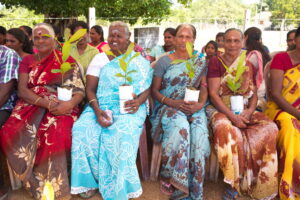
Women in Kiran join the Greening Batticaloa programme and receive cashew plants – part of an initiative to plant 1 million in the region as a combined environmental and humanitarian initiative. They will bring their crop to the Centre to shell, roast, pack the cashews and generate the maximum value addition for themselves and their families from their crop.
Speaking at the event General Darshana Hettiarachchi thanked Merrill J. Fernando for his empathy for the people of the East. Whilst emphasizing the extent of the hardship the people of the region are undergoing, he commented that the state alone could not manage the scale of the effort needed to restore genuine peace in the east – peace defined by more than the absence of conflict that is. He asked why more successful businesses could not join the endeavour.
And that’s the point. If more businesses could sincerely and committedly adopt humanitarian and environmental purpose, there is no conservation, poverty or other problem that would remain unresolved. In response, most will argue the concept of shareholder pressure on a business to perform financially. That is as outdated a notion as Friedman’s infamous quote, for by its existence every business has a fundamental obligation to stewardship, of people and planet. The world, and specifically their customers define that notion of stewardship, and it includes integrity, and managing their impact on people and the environment to deliver positive outcomes in both.
If all this sounds utopian, let me quote a learned and experienced corporate leader – John G. Taft, banker, financier, journalist and great-grandson of former President William Howard Taft – who experienced both Enron, WorldCom crises and the collapse of the banking industry in the US in 2008. He wrote a book in which he states,
“Stewardship as a foundational principle has to do with the proposition that one’s true purpose—and that the ultimate purpose of organizations and of our communities—is to serve others.”
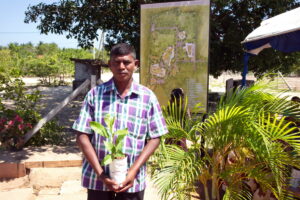
A farmer in the Greening Batticaloa programme, will nurture cashew plants and when they crop, will come to the Centre to shell, roast and pack his cashew to secure the best price.
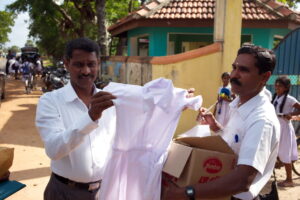
A lack of school uniforms causes poor attendance in schools. The MJF Foundation annually distributes over 5,000 uniforms to students in the poorest parts of the region.
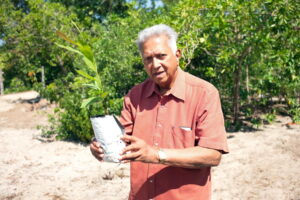
Merrill J. Fernando planted the 500,000th cashew plant, a Dilmah Conservation project initiated 5 years ago for combined environment and socio-economic outcomes.
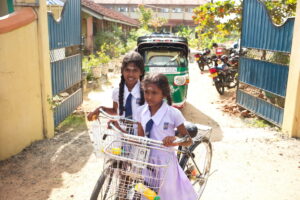
The Education department estimates that 97% of school going children come from families affected by poverty.
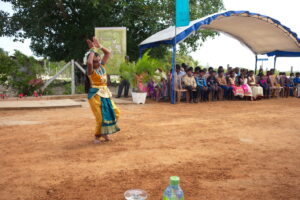
The community joined the Dilmah Team in laying the foundation stone for a centre that will change their lives.

